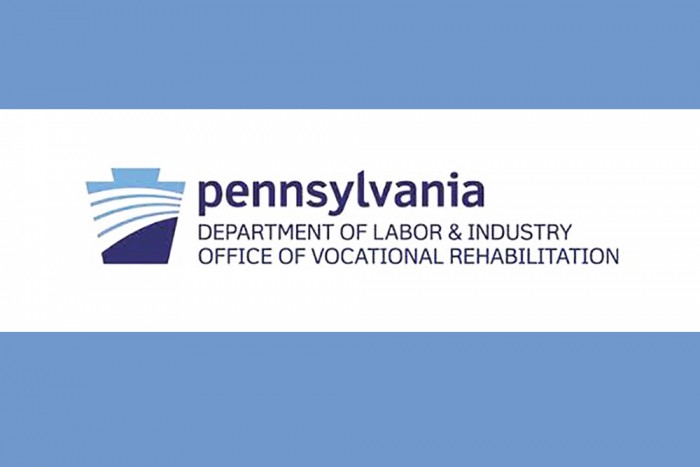Shapiro Administration
RCPA Urges Senators to Preserve OVR Employment Funding
The Rehabilitation and Community Providers Association (RCPA), in conjunction with our provider members and partner stakeholders, have written to PA Senator Casey and PA Senator Fetterman to express our full support for ensuring the mandated inflationary increases are preserved for the Pennsylvania Office of Vocational Rehabilitation (OVR) so that critical OVR employment programs will continue for working and job-seeking Pennsylvanians with disabilities. Vocational rehabilitation funding is essential in Pennsylvania to maintain services that support the advancement of employment. We are fortunate that our state legislature has consistently funded Pennsylvania OVR in a manner that has allowed OVR to collect the full federal match and even draw down more when there is a surplus.
If the mandated inflationary increases are rescinded, Pennsylvania’s OVR funding will be cut by millions of dollars, adversely impacting working and job-seeking Pennsylvanians with disabilities. Specifically, approximately $13M would be eliminated from a limited $200M budget, or 6.5%. The resources provided to PA OVR are too valuable and already limited. This potential action forces Pennsylvania to prioritize allocations at the expense of critical employment and related services. Maintaining funding levels is crucial for advancing employment for individuals with disabilities.
Should you have any questions, please feel free to contact Intellectual/Developmental Disabilities Division Director Carol Ferenz or IDD Policy Analyst Cathy Barrick.
GoErie: An Elder Boom is Coming, Are We Ready to Care for the Aged?
An Elder Boom is Coming, Are We Ready to Care for the Aged?
Geoff Gross, Philadelphia, founder and CEO of Medical Guardian
Aging adults are at the center of many strategic conversations lately and I hope that continues. According to the Pennsylvania Department of Aging, the population of Pennsylvanians aged 60 and over is projected to surpass 3.8 million by 2030 — the fifth highest in the country — accounting for one in three Pennsylvanians. Soon, older Pennsylvanians are expected to outnumber every other age group which is unprecedented in U.S. history, according to the Population Reference Bureau (PRB).
This dramatic demographic shift impacts strategic planning and product development in all industries from housing, to health care, and beyond. How older adults are living is also shifting. Instead of slowing down, aging adults are demonstrating that aging can be an exciting period of growth, reinvention and maintained independence. This shift in lifestyle also requires a deep rethinking of how to support older adults.
Fortunately for Pennsylvanians, Governor Shapiro’s strategic plan for older adults, Aging Our Way, proposes strategies to bring together services and investments from 29 different commonwealth agencies in new ways that address the shifting needs of this growing population. But we can’t stop with a plan; it needs funding, voices and ambassadors to ensure it goes into action so that Pennsylvania’s largest population is taken care of.
I encourage you to reach out to your legislators and ask them to support funding, planning and programming for our older adults. It is time to invest in those who got us through some of the most challenging times in our country’s history. It is time that we care for, engage with and uplift Pennsylvania’s — and all — older Americans.
GoErie: RCPA Member Barber Center Leaders Call for Sustained Relief for Chronically Underfunded ID/A Services

RCPA Member Emmaus Hosts Press Conference to Thank Legislators and Governor for Budget (Video)
Governor’s Office Budget Briefing on ID/A Services for FY 2024/25 Postponed
With the passing of the FY 2024/25 PA budget last week, intellectual and developmental disabilities and autism (ID/A) associations are attempting to obtain clarity regarding its impact on services. The Governor’s Office announced, however, that the scheduled meeting to review these impacts has been postponed in order to allow the Department of Human Services (DHS) more time to analyze the details of the budget. The Governor’s Office shared the following message:
The Commonwealth’s enacted FY24-25 budget includes a philosophical shift in how Pennsylvania approaches service delivery for individuals with intellectual disabilities and autism – a much needed and overdue course change to invest in dignity and opportunity for this community. In February, Governor Shapiro announced the intent to tackle the waiting list for services with a new approach, the Multi-Year ODP Program Growth Strategy. Accompanying this structural change is a substantial investment in services for individuals with intellectual disabilities and autism totaling $354.8M combined state and federal funds – an investment that supports providers, direct support professionals, and families who help make our vision of Everyday Lives a reality.
Included in the total funding is $280M in federal and state funds, which averages 7 percent rate increases for FY24-25. DHS is continuing the analysis of the funds appropriated for FY24-25 for ID/A services and how this will reflect in final rates that will take effect for FY24-25. Also included is an investment of $74.8M in combined federal and state funds for FY24-25 to put the commonwealth on a path to end the emergency waiting list by offering 1,500 adults enrollment in the Consolidated or Community Living Waivers and altering the management of home and community-based services capacity.
In addition to rate increases, the enacted budget includes funding for the implementation of performance-based contracting and the addition of sign language interpretation services. Performance-based contracting is scheduled to be implemented for residential services beginning in FY24-25. Sign language services will be added to ODP’s home and community-based waivers beginning January 1, 2025, pending approval from the Centers for Medicare and Medicaid Services.
We know there is great interest to further discuss the impact of the enacted budget on your programs and services. DHS will provide additional information to stakeholders related to the necessary recalculation for the fee schedule rates for FY24-25 and performance-based contracting upon completion of the analysis.
The Center Square: State Establishes Office Dedicated to Alzheimer’s Disease Support
RCPA Joins ID/A Associations in Calling 2024/25 Budget “A Strong Step Forward”
HARRISBURG, PA (July 12, 2024) – Intellectual disabilities and autism (ID/A) advocates and providers are calling the final 2024/25 Pennsylvania budget a “strong step forward” that will “change so many lives for the better.” The approved budget includes additional funding for increased rates and more capacity to serve the waiting list. As Gov. Josh Shapiro noted last night in his final budget remarks, “The ID/A community was finally heard in these halls of power.”
“I am grateful for the partnership and collaboration with Pennsylvania Advocates and Resources for Autism and Intellectual Disabilities (PAR), The Provider Alliance, MAX Association, The Alliance of Community Service Providers, The Arc of Pennsylvania, and RCPA,” said Richard Edley, PhD, CEO and President of Rehabilitation and Community Providers Association (RCPA). “It was this unique and unified advocacy that has led to this important step forward in the administration’s multi-year growth strategy. Thank you, Governor Shapiro, and the House and Senate, for listening. We look forward to our continued work together.”
View the full press release here.
Governor Shapiro Signs Bipartisan 2024/25 Budget
On July 11, 2024, Governor Shapiro signed a bipartisan 2024/25 budget that invests in a range of fields, from health care to public transportation to education. The details of the budget are available in the Governor’s Press Release, which highlights each field and dollar amounts signed. In particular, the budget addresses:
- Supporting PA’s ID/A community and Direct Support Professionals (DSP);
- Investing in gun violence prevention;
- Increased funding for nursing homes and the Aging Our Way plan;
- Combatting maternal mortality; and
- Further investments in mental health.
RCPA Policy Staff will be reviewing the budget in great detail over the next few days. We plan to reach out to our members with updates and key information as more becomes available and analyzed. If you have any questions regarding the budget, please reach out to your Policy Director.














